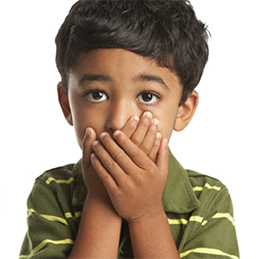“Comprehensive Sexuality Education (CSE) goes far beyond sex ed, and is a dangerous assault on the health and innocence of children…”
(Dr. Michelle Cretella, President of the American College of Pediatricians)
“Comprehensive Sexuality Education (CSE) goes far beyond sex ed, and is a dangerous assault on the health and innocence of children…”
(Dr. Michelle Cretella, President of the American College of Pediatricians)
SIGN THE ONLINE PETITION
Please sign the petition calling upon teachers, school administrators and government bodies at the local, state, national, regional and international levels to immediately stop promoting and funding harmful comprehensive sexuality education (CSE). READ PETITION >
This film exposes the most controversial and harmful parts of CSE programs. A 10-minute and a 35-minute version of the film are available in multiple languages.
Support the grassroots effort to Stop CSE by sharing the dangers of the curriculum through social media, email and more.
Sign our petition (or create your own) calling upon governments and schools to stop implementing and funding CSE programs.
We invite individuals, businesses and organizations to support the movement to Stop CSE by endorsing and promoting the film and in other ways.
COMMON QUESTIONS

While there is not one universal definition of “comprehensive sexuality education” (CSE) and what it includes, CSE is a highly controversial, “rights-based” approach to sex education that encompasses a great deal more than just teaching children and youth about sexual intercourse and human reproduction. Developed in the West, primarily in the United States, CSE is now being implemented in most countries around the world.
Comprehensive sexuality education programs seek to change society by changing sexual and gender norms and teaching youth to advocate for their sexual rights. Most CSE programs promote acceptance of diverse sexual identities and orientations and have an almost obsessive focus on sexual pleasure, instructing children and youth at the earliest ages on how to obtain sexual pleasure in a variety of ways.

Many CSE programs teach children about sex, sexuality, or sexual pleasure as young as age 5. World Health Organization (WHO) programs have CSE concepts targeting children from as early as 0 to 4 four years old.
Below are a few of the most harmful concepts CSE programs promote to children.

Sexual education or “sex ed” is education that focuses on the human reproductive system and helps youth understand the changes their bodies experience during puberty. It is not uncommon for Sex Ed programs to include contraceptive or abstinence instruction.
Comprehensive sexuality education (CSE) is vastly different from standard sex-ed instruction. Although CSE instruction will include most of the instruction covered by Sex Ed programs, it typically does not include abstinence education in any depth, and it will go much further using graphic materials and visuals that are sexually explicit in nature.
The ultimate goal of CSE is to change the sexual and gender norms of society. CSE is a “rights-based” approach to sexuality education and promotes sexual rights to children at the expense of their sexual health.
MORE >

One of the main goals of comprehensive sexuality education is to radically change the gender and sexual norms of society and to establish rights for children as sexually autonomous beings. In order to fulfill these alleged sexual rights, activists claim that children must have unfettered access to “comprehensive” sexual information that leaves no sexual knowledge behind.
MORE >

CSE teaches children they can choose their gender. |
CSE programs teach children that gender is fluid and often place greater emphasis and even praise those of homosexual or transgender orientation over heterosexuals. |

CSE teaches 5 year olds they can pleasure themselves sexually. |
CSE typically starts preparing children for sexual activity at early ages. Many programs have curriculum developed for kids 0-4 years. |

CSE teaches 9 year olds how to put on a condom. |
Many CSE programs utilize statues of male and female genitalia to teach young children how to put on a condom. |

CSE teaches children to use statements such as: ``I like it when you touch me here.`` |
“I like it when you touch me here” is one of many suggestive phrases used in CSE programs that claim to teach children how to negotiate sexual encounters and to achieve greater sexual pleasure with their partners. |